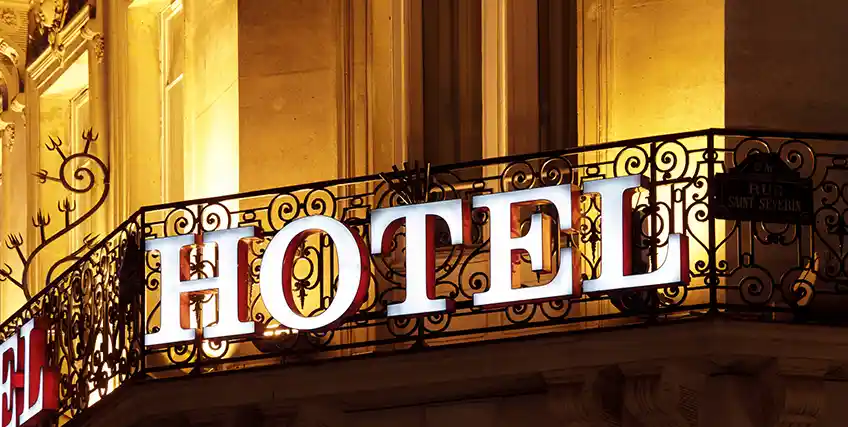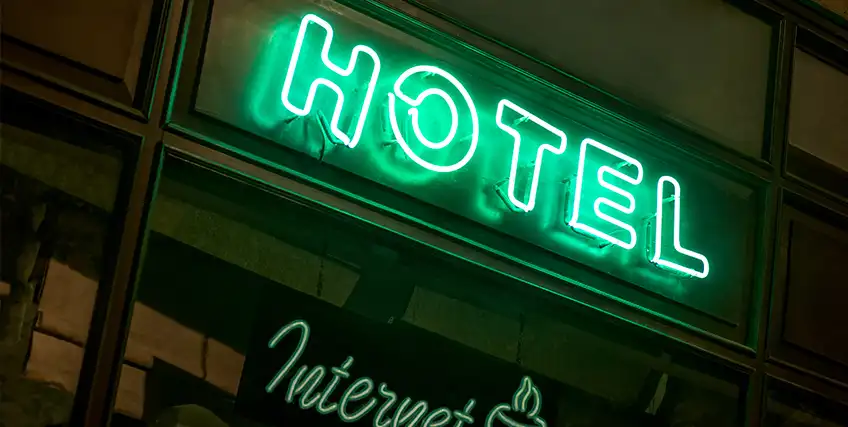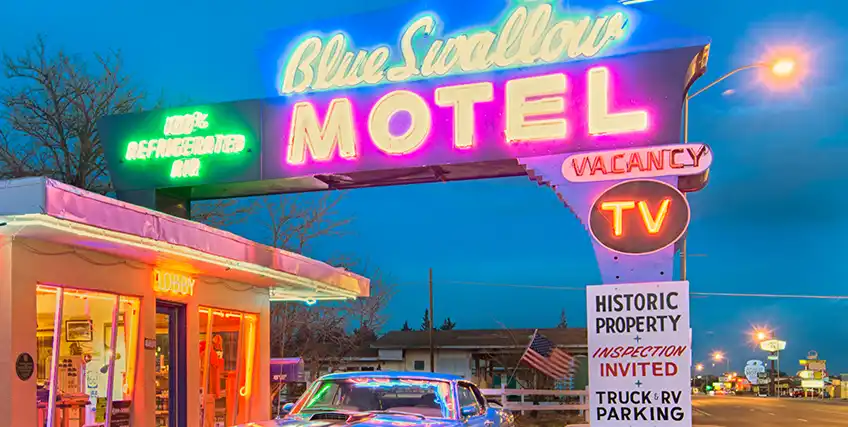4 Things You Must Consider Before Buying A Hotel or Motel
March 25, 2025 | Last Updated on: March 25, 2025

Buying a hotel or motel is always a large and complicated transaction. Every hotel is different, and buyers must seek to understand a property’s potential in the context of dynamic market conditions. It is critical to do extensive due diligence on any hotel or motel purchase. Here are 4 things you must consider before buying a hotel or motel.
1. Understand The Key Financials Of The Hotel Or Motel
When you are analyzing a hotel or motel for purchase, it’s essential to understand the key financial measures of hotel performance. Be sure to request or calculate them for the hotel or motel you are considering buying.
- Building Expenses: If you decide to build a hotel, you'll have to calculate construction costs and factor them into your bottom line.
- Average Daily Rate is the average rate paid by guests at the hotel. You can calculate it for a specific period of time by taking the total revenue of the hotel during that period and dividing by the number of rooms sold during that period. This number may feed your cash flow projections and is a major driver of occupancy, so it is important to understand the average rate your guests are paying.
- Occupancy Rate reflects the occupancy of the property. This is calculated by dividing the number of rooms sold by the total number of rooms in the hotel or motel. From this, you can calculate the Market Penetration Index by dividing your occupancy rate by the market occupancy rate and multiplying the result by 100. If the result is over 100, the hotel is performing well for its market in terms of occupancy.
- Revenue Available Per Room (RevPAR) is a performance metric specific to hotels and motels and Revenue Generated Index. It is calculated by multiplying a hotel’s Average Daily Rate by its Occupancy Rate. A higher RevPAR is usually a good thing because it means a hotel’s Average Daily Rate, Occupancy Rate, or both are high or increasing. However, don’t use RevPAR in isolation because it fails to consider the scale of the hotel.
- Average Length of Stay is an important metric for any hotel manager because fewer turnovers means lower operational costs and labor. You calculate it by dividing the occupied rooms by the number of bookings for a specific period of time. A higher Average Length of Stay can point to higher profits.
- EBITDA stands for Earnings Before Interest Tax Depreciation and Amortization. It is a measure of operational profitability for hotels and other types of businesses. It is sometimes used as a proxy for cash flow or profit, but it is not quite the same. It is calculated as Total Revenue - Total Expenses (excluding interest, tax, depreciation, and amortization). EBITDA is important in the hotel industry because it reveals to buyers, investors, and lenders the amount of cash flow available to cover operational expenses and pay interest on the loan.
If you take the time to understand these metrics, you be able to gain a nuanced perspective of the underlying financials and performance of a particular hotel or motel. This list is not exhaustive. You should be sure to do your research, including requesting financials and tax records, inventory records, leases, contracts, warranties, and environmental studies.
2. Consider How This Hotel Or Motel Creates Synergies With Your Other Assets
A synergy is the concept that the combined value of two assets may be greater than the two assets separately. If you are buying a hotel or motel and already have other hotels or motels, you may be able to realize synergies in the transaction. For instance, you may be able to share staff between the properties or even merge back-office functions like payroll. These steps can save your business money and promote efficiency and should be factored into your projections.
3. Find a Good Lender and Understand Their Requirements
Be sure to explore all of your options for hotel loans before picking one. In addition to ensuring that the cash flows of the hotel can cover the loan payments, a lender may have numerous restrictions and requests regarding the financing required for a hotel purchase. Make sure to understand your lender’s preferred Debt Service Coverage Ratio, which is Net Operating Income / Annual Debt Service. Net Operating Income is Total Revenues Minus Total Expenses. Debt Service is the cash required to make interest and principal payments on a loan. Most commercial real estate lenders want this ratio to be 1.4+ for hotels and motels. If the hotel you are purchasing has a franchise model, make sure you know your lender’s policies about working with franchised hotels. Your lender may require a so called “Comfort Letter,” which addresses the lender’s rights in the event of a default. The lender may require a Hotel Management Agreement, which stipulates certain things about the hotel should be run and managed. The lender may also require that you maintain a certain capital reserve in a lender controlled account. Be sure to seek out a lender that is familiar with these types of loans.
4. Pick the Right Bid Price
The most important part of buying a hotel or motel is determining how much to bid. In order to determine the right price, you have to take into consideration many factors, including the property’s current performance, the surrounding market, and the future outlook. Determine your price using expected future revenues and expenses using realistic estimates. Perform a discounted cash flow analysis or hire someone to do it for you, and examine nearby comparable hotel sales. The price will depend on the market conditions and your unique situation.
Do Your Homework and Partner With the Right Experts
When considering any hotel or motel purchase, it pays to do your homework and be selective. Along the way, be sure to seek out experts and partners such as an attorney, accountant, and experienced lender to assist you with the transaction. Biz2Credit helps hotels and motels secure credit solutions, featuring long-term below-market fixed rate financing and lower down payments
Conclusion:
Buying a hotel or motel is a complex process that requires careful planning, research, and financial analysis. Understanding key performance metrics, identifying potential synergies, securing the right lender, and determining an appropriate bid price is essential for a successful investment.
Conducting thorough due diligence and working with experienced professionals, such as attorneys, accountants, and lenders, can help mitigate risks and ensure long-term profitability. By taking these steps, buyers can make well-informed decisions and maximize their investment potential in the hospitality industry.
FAQs
What do you need to buy a hotel?
When purchasing a hotel, there are several key steps to follow. Begin with thorough research by partnering with a hotel broker or commercial real estate firm to identify potential locations and available properties. Next, secure financing to ensure you have the necessary capital. Conduct a market analysis to assess the local demand and competition. Perform due diligence to review the property's condition, legal matters, and any other factors that may impact the investment. Prepare financial projections to estimate future performance. Once these steps are complete, make an offer and enter into negotiations. Finally, finalize the deal with the necessary paperwork and closing procedures.
What do I need to know before starting a hotel?
It's essential to conduct thorough market research to understand the dynamics of the area. The location of your hotel is paramount, as it directly impacts its success. Choosing the right property involves evaluating the hotel building's condition and potential for improvement. Additionally, ensure you have the necessary licenses and permits to operate legally. Setting competitive pricing is crucial to attract guests while maintaining profitability. Identifying your target market helps tailor your services to meet their needs. Don't forget to hire and train a skilled staff to provide excellent service. Finally, develop a comprehensive business plan to guide your strategy and operations.
What is the difference between a hotel and a motel?
Motels are typically low-rise buildings with one or two floors, whereas hotels can be high-rise structures with extensive facilities. Motels also tend to offer fewer amenities and have more limited food and beverage options. Their operations are generally more streamlined with a smaller staff and fewer specialized roles. As a result, motels often provide more affordable rates compared to hotels.
How hard is it to run a hotel?
Running a hotel involves managing various aspects, including reservations, check-in and check-out processes, room availability, pricing, guest communication, website management, third-party booking channels, housekeeping, maintenance, and billing. While these tasks can be handled manually, an efficient system is essential for smooth operations.
What is the biggest threat in hotel business?
Hotels are frequent targets of cyberattacks due to the vast amount of sensitive data stored on their servers. Data security remains a significant concern in the hospitality industry, as the growing reliance on technology has made businesses more vulnerable to cyber threats. Protecting guest information and securing digital systems has become one of the industry's most pressing challenges.




